Buying a home is like stepping onto a rollercoaster blindfolded—thrilling, unpredictable, and occasionally stomach-churning. Whether you’re living in Metro Detroit or moving to Metro Detroit, the stakes are high, and the potential for missteps is even higher. According to studies by the Wall Street Journal and the New York Times, a staggering 60 to 80 percent of buyers experience buyer’s remorse. But fear not! We’re here to ensure that you don’t become another statistic. From falling in love with a house that turns out to have the same charm as a haunted mansion to overlooking that killer commute that eats away at your soul, we've compiled the ultimate list of 44 home buying mistakes to avoid. So buckle up, because we’re about to guide you through the twists and turns of the home buying journey with a mix of wit, wisdom, and a whole lot of insider know-how. Let's make sure your Metro Detroit dream home doesn’t come with a side of regret!

1 - Skipping the Mortgage Preapproval
One of the most significant pitfalls in the home-buying process is skipping the mortgage preapproval. This rookie mistake can leave potential buyers scrambling to secure financing when they find their dream home. Without preapproval, the clock is ticking, forcing buyers to act quickly without the luxury of shopping around for the best rates, costs, and loan products. This urgency can lead to costly decisions and missed opportunities, proving that taking the time to get preapproved is a critical step toward a smooth home-buying experience.
2 - Not Researching the Neighborhood
Failing to thoroughly research the neighborhood before purchasing a home is a common error that many buyers make. Often, their first and only impression of the area comes from a brief showing, which is hardly enough to understand the community's true character. It's essential to visit the neighborhood at different times of the day, on various days of the week, and even during weekends. This practice helps prospective homeowners gauge the vibe of the area, ensuring it aligns with their lifestyle and expectations before making a commitment.
3 - Skipping the Home Inspection
Forgoing a home inspection is a mistake that can result in substantial financial burdens down the road. A thorough inspection can uncover significant issues that may not be visible during a casual walk-through, such as structural problems or hidden water damage. Warning signs like horizontal cracks in basement walls or stains on ceilings should never be overlooked. Hiring a qualified inspector to evaluate the property is an investment that can save buyers from unforeseen repairs and headaches, making it a crucial step in the home-buying process.
4 - Not Budgeting for Closing Costs
Many buyers focus solely on the down payment, overlooking the array of closing costs that accompany the purchase of a home. These expenses, which can include mortgage closing costs, filing fees, and funding a tax escrow account, can quickly add up. It's wise to budget an additional 2% to 2.5% of the home's purchase price to cover these costs. Being prepared for these expenses ensures there are no last-minute financial surprises that could derail the home-buying process.
5 - Falling in Love with Staging
The allure of expertly staged homes can sometimes cloud buyers' judgment, leading them to overlook fundamental aspects of the property. Staging is designed to enhance a home's appeal, often masking outdated or less desirable features. For example, a home with rented furniture and strategically placed decor might hide outdated countertops or aged bathrooms. It's crucial to look beyond the surface and assess the property's real condition to avoid disappointment after the final sale.
6 - Not Considering Resale Value
While a home may have unique features that cater to a buyer's specific tastes, it's important to consider its resale value. A property that is overly customized may not appeal to a broader market, making it difficult to sell in the future. For instance, a homeowner with a tennis court that occupied the entire yard found it challenging to attract buyers. After removing the court and landscaping the area, the home sold quickly and for a higher price. This example underscores the importance of thinking ahead and ensuring a home's features will attract future buyers.
7 - Failing to Research Your Real Estate Agent
Choosing the right real estate agent can significantly impact the home-buying experience. It's essential to conduct thorough research and read reviews to select an agent who is reputable and experienced. A good agent will guide buyers through the complexities of purchasing a home, making the process smoother and more enjoyable. In contrast, a less skilled agent could complicate matters, leading to stress and potential financial loss. Buyers should take the time to choose an agent who aligns with their needs and has a track record of success.
8 - Not Getting Everything in Writing
Relying on verbal agreements during a real estate transaction is a risky move. Written contracts provide legal protection and ensure that all parties are held accountable for their commitments. Everything from purchase agreements to contingencies should be documented and signed to avoid misunderstandings and potential disputes. In real estate, a handshake is not enough—it's crucial to have all agreements in writing to protect one's interests fully.
9 - Not Factoring in All the Costs
A common oversight among homebuyers is not accounting for all the costs associated with homeownership. Beyond the monthly mortgage payment, there are property taxes, homeowners insurance, homeowners association fees, and maintenance expenses to consider. Additionally, buyers should plan for unexpected repairs and long-term upkeep, budgeting approximately 1% of the home's price annually for these expenses. Understanding and preparing for these costs can prevent budget overruns and financial strain.
.png)
10 - Waiting Too Long to Start the Process
Procrastination in the home-buying process can lead to rushed decisions and unnecessary stress. Potential buyers should plan their timeline well in advance, considering all factors such as lease end dates, moving logistics, and renovation plans. By working backward from the desired move-in date and allowing ample time for each step of the process, buyers can ensure a smoother transition and avoid the pitfalls of hasty purchases. Starting the search early allows for careful consideration of options and a more relaxed home-buying experience.
11 - Rushing the Purchase Decision
Taking the time to thoroughly research and assess all aspects of a home purchase is paramount to avoiding long-term financial regret. Emotional decisions often lead to hasty purchases that might not align with the buyer's long-term goals or financial realities. It's crucial to remain objective, evaluate all options carefully, and avoid the pressure to make impulsive decisions. A well-considered approach ensures that the home meets current and future needs without causing unnecessary financial strain.
12 - Buying for the Short Term
When purchasing a home, it's essential to think beyond immediate needs and consider the long-term implications. With the average homeowner now staying in a property for nearly 14 years, it is wise to anticipate future life changes such as growing families or transitioning to an empty nest. Focusing on a home that will accommodate potential shifts in lifestyle and family size can save significant money and stress over time, reducing the frequency of costly moves.
13 - Overlooking Resale Potential
Resale potential is a critical factor that many buyers overlook. It's important to avoid properties with unique features that may not appeal to the broader market, such as homes near railroad tracks, overly customized renovations, or properties significantly above the neighborhood standard. Paying attention to these details can ensure that when it's time to sell, the property attracts a wide range of buyers, helping to maintain or even increase its market value.
14 - Ignoring Government Loan Programs
Overlooking government loan programs can mean missing out on significant financial benefits. Programs like FHA loans, VA loans, USDA loans, and state-specific grants offer favorable terms, such as lower interest rates, no down payment requirements, or the ability to assume lower interest rates. For example, a VA loan at 3.25% interest is a valuable asset in a market where current rates are much higher. Prospective buyers should explore all available options with their loan officer to maximize financial advantages.
.png)
15 - Choosing Loans with Prepayment Penalties
In the current financial climate, loans with prepayment penalties can be detrimental. While locking in a low rate may have been advantageous in the past, today's higher rates suggest that refinancing could become an attractive option in the near future. Prepayment penalties could cost thousands of dollars, negating the savings from a reduced interest rate. Buyers should avoid these loans and opt for more flexible financing to allow refinancing when market conditions improve.
16 - Underestimating Repair and Renovation Costs
Repair and renovation expenses are often significantly underestimated by homebuyers. Whether it's a new roof, kitchen remodel, or other necessary upgrades, costs can quickly exceed initial estimates due to rising material and labor expenses. Being realistic about these costs and budgeting accordingly is essential to avoid unexpected financial burdens that can strain budgets and diminish the joy of homeownership.
17 - Waiving the Inspection Contingency
In competitive markets, some buyers are tempted to waive the inspection contingency to strengthen their offers. This strategy, however, can backfire if hidden defects are discovered after the purchase. A better approach is to offer a shortened inspection period or opt for a pass/fail inspection to maintain protection while still appealing to the seller. This ensures that any significant issues are identified and addressed before the sale is finalized.
18 - Not Checking a Builder's Reputation
For those building a new home, thoroughly vetting the builder's reputation is crucial. This includes checking reviews, Better Business Bureau ratings, and speaking with previous clients. Understanding a builder's track record on cost overruns, project delays, and quality control can prevent costly surprises. Prospective buyers should also consider visiting existing homes and talking to current homeowners to gain insights into their experiences and the builder's reliability.
19 - Overextending Financially
Overbuying is a common mistake that can lead to financial stress and limit future opportunities. It's advisable to keep housing costs, including mortgage payments, within 28% of gross income to maintain financial flexibility. This conservative approach allows homeowners to save for emergencies and avoid becoming "house poor," where a large portion of income is tied up in mortgage payments, leaving little room for other expenses or unexpected costs.
.png)
20 - Not Researching Zoning and Restrictions
Failing to research zoning laws and property restrictions can lead to costly mistakes. Buyers should always confirm that their intended use of the property aligns with local regulations and association bylaws. For example, historic buildings may have strict renovation restrictions, and homeowner associations might prohibit additional structures or long-term RV parking. Getting clear, written confirmation from relevant authorities ensures that buyers do not inadvertently violate rules that could lead to legal disputes or financial loss.
21 - Ignoring the Legal Description and Title Work
Overlooking the legal description and title work is a mistake that can have serious consequences. The legal description defines exactly what property you are purchasing, down to the exact boundaries and dimensions. A misunderstanding of these details can lead to disputes with neighbors or unanticipated limitations on the use of your property. For instance, a recent case involved a homeowner who extended their driveway only to discover it encroached on a neighbor's land due to a misinterpreted property line. This situation caused unnecessary tension and legal headaches. Ensuring you fully understand the legal description and title work will protect you from costly errors and conflicts down the line.
22 - Assuming Utilities Are Sufficient
Older homes, particularly those over a century old, often come with outdated utilities that may not meet modern standards or demands. It’s common for only parts of the plumbing and electrical systems to have been updated, leaving original components like lead pipes or knob-and-tube wiring in place. These outdated systems can pose significant safety hazards and incur substantial upgrade costs. Before committing to a historic home, it's essential to conduct a thorough inspection of the utilities and be prepared for potential upgrades to ensure they meet current safety standards and can support your needs.
23 - Not Verifying School District Boundaries
A property's location within a specific school district is a crucial factor for many buyers, especially those with children. However, school district boundaries do not always align neatly with city or neighborhood lines. For example, a home may be geographically located in one city but fall under a different school district, which can be a shock for buyers expecting their children to attend certain schools. To avoid such surprises, it's important to confirm the exact school district of a property by contacting the local school board or municipal office before finalizing a purchase.
24 - Failing to Maintain a Rainy Day Fund
Unexpected repairs can arise at any time, and without a financial cushion, homeowners may find themselves in a difficult situation. A rainy day fund is essential for covering unforeseen expenses, such as a sudden furnace failure or roof leak. Ideally, single homeowners should aim to set aside at least $1,000, while families should target a minimum of $5,000. Placing this emergency fund in a high-yield savings account or other accessible investments can provide a small return while ensuring funds are available when needed. This financial preparedness is key to handling unexpected costs without undue stress.
25 - Not Prioritizing Features
It’s rare to find a home that perfectly meets every need and desire, making it important to prioritize what features are most important. Creating a ranked list of top needs and wants can help clarify what compromises are acceptable and which are not. For example, if a finished basement and four bedrooms are top priorities but not feasible within the budget in a desired area, buyers may need to choose between a different city or modifying their expectations. Clearly identifying non-negotiable features versus nice-to-haves streamlines the decision-making process and helps avoid disappointment.
26 - Failing to Negotiate Repairs
Negotiating repairs following a home inspection is a critical step that many buyers overlook, particularly in a competitive market. While some agents may advise against requesting repairs to avoid jeopardizing a deal, it's important to consider the long-term implications. Significant issues such as roof leaks, mold, or outdated furnaces can lead to substantial expenses down the road. Buyers should feel empowered to negotiate for necessary repairs or a price reduction to account for the costs. If the seller is unwilling to negotiate, it may be wise to reconsider the purchase rather than accept a property with hidden liabilities.
27 - Skipping the Final Walkthrough
Skipping the final walkthrough before closing can be a costly mistake. This last inspection ensures that the property is in the same condition as when the offer was made and that all agreed-upon repairs have been completed. An unexpected issue discovered after the sale closes can become the buyer’s responsibility, as illustrated by a case where a buyer skipped the walkthrough and ended up with a home severely damaged by burst pipes. Always make time for a final walkthrough to verify that the home is in acceptable condition and to prevent any unwelcome surprises after moving in.
28 - Not Planning for Moving Expenses
Moving expenses can quickly add up, often exceeding initial expectations. Whether hiring professional movers or renting a truck for a DIY move, costs like fuel, labor, and supplies such as boxes and bubble wrap can be significant. Additionally, unexpected fees or rate increases can inflate the overall expense. To avoid financial strain, it's crucial to budget for these costs ahead of time, factoring in a buffer for potential surprises. Proper planning ensures a smoother transition into the new home without the added stress of unexpected moving expenses.
29 - Buying the First Home You See
While it may be tempting to purchase the first home that seems to fit all your criteria, it’s advisable to view several properties before making a decision. This approach allows buyers to compare different homes and features, ensuring they truly find the best fit. Often, after viewing multiple properties, buyers either confirm their initial choice or discover new priorities that change their decision. Taking the time to explore various options provides peace of mind and confidence in the final purchase, ensuring satisfaction with the chosen home.
.png)
30 - Being Unrealistic About DIY Projects
Many buyers underestimate the time, effort, and expertise required for home improvement projects. DIY tasks that seem simple can quickly become overwhelming, especially for those without prior experience. Buyers should honestly assess their skills and available time before committing to major projects. If a task, such as roofing or major structural changes, is beyond their capabilities, it’s better to budget for professional assistance or reconsider properties needing extensive work. Realistic expectations and planning can prevent unfinished projects and ensure the home remains a source of pride and enjoyment rather than a source of stress.
31 - Not Using a Great Real Estate Agent
Choosing the right real estate agent can make or break the home-buying experience. A great agent does more than just show homes and process paperwork—they provide invaluable guidance and advocacy throughout the entire process. They can steer buyers away from potential money pits, negotiate effectively during both the initial offer and subsequent inspections, and provide access to properties not yet listed publicly. Additionally, a great agent anticipates issues like zoning restrictions, property easements, or costly DIY projects and ensures that clients are fully informed. To find such an agent, buyers should meticulously read through online reviews and look for agents with a substantial number of genuine, positive testimonials—typically over 500 reviews. This level of feedback reflects not only experience but consistent client satisfaction.
32 - Overlooking Privacy Considerations
Privacy is an often-overlooked factor when choosing a home, but it plays a significant role in long-term satisfaction. Homes located close to downtown areas may offer the convenience of walkability but often come with the trade-off of minimal lot sizes and close proximity to neighbors. For some, the lack of privacy might be a dealbreaker. Conversely, homes located further out often provide larger lots, opportunities for fencing, and natural barriers like wooded areas, which can create a more secluded and serene living environment. Buyers should carefully weigh their desire for privacy against the convenience of location to find a home that truly suits their lifestyle preferences.
33 - Forgetting About Commute Times
Relocating to a more rural or suburban area can seem appealing, especially for those seeking a quieter lifestyle or larger property. However, it’s crucial to consider the reality of the daily commute. Many buyers underestimate the impact of increased travel time, which can lead to regret and the desire to move back closer to work or urban amenities. Longer commutes not only cost more in terms of gas and vehicle wear and tear but also take valuable time away from family and leisure activities. Buyers should carefully consider commute times and test the drive during peak hours before committing to a home further from their daily destinations.
34 - Ignoring Lifestyle Fit
Selecting a home that aligns with one’s lifestyle is just as important as finding the right location. For example, avid cyclists or gym enthusiasts should consider proximity to bike lanes, trails, or fitness centers. Similarly, those who value community events or need access to specific amenities should look for neighborhoods that cater to those needs. Buyers should take the time to map out their daily routines and consider how a potential new home will fit into their lifestyle. A mismatch can lead to frustration and dissatisfaction, while a well-chosen home can enhance daily living.
.png)
35 - Ignoring Commute Patterns
Many homebuyers moving from out of town or state may not realize how traffic patterns can significantly impact their daily commutes. It’s not enough to estimate drive times based on distance alone; actual commute times can vary greatly depending on the time of day and local traffic conditions. Buyers should test their commutes during typical travel hours to get a realistic picture of what daily travel will be like. Understanding commute times upfront can prevent future frustration and help buyers choose a location that balances home amenities with manageable travel.
36 - Not Maximizing Your Credit Score
A high credit score can save homebuyers thousands of dollars over the life of a mortgage, yet many do not take the time to optimize their score before applying for a loan. Reviewing credit reports six to nine months before beginning the home search allows buyers to identify and correct errors, pay down debt, and strategically manage credit utilization. By boosting their credit score, buyers can secure better interest rates and reduce overall loan costs. It’s a small effort that can yield significant financial benefits and improve home affordability.
37 - Failing to Check Insurance Claims
Overlooking past insurance claims on a property can be a costly mistake. The Comprehensive Loss Underwriting Exchange (CLUE) report provides a history of insurance claims on a property, which can reveal issues such as water damage, fire, or mold that may not be immediately visible. Buyers should request this report during the due diligence period to ensure there are no hidden issues that could affect insurance premiums or require costly repairs in the future. It’s a simple step that can provide peace of mind and prevent unexpected expenses.
38 - Not Checking New Property Taxes
Relying on a property's current tax bill can lead to unpleasant surprises after the sale. In many areas, property taxes are reassessed upon sale, which can significantly increase the tax burden for the new owner. Buyers should research how property taxes are calculated in the area and ask for an estimate of the new tax amount based on the purchase price. Understanding the true cost of ownership upfront can prevent financial strain and ensure that buyers are fully prepared for all aspects of homeownership.
39 - Overlooking Specialty Inspections
Standard home inspections provide a general overview of a property's condition, but they may not cover all potential issues. Specialty inspections, such as radon testing, mold inspections, or sewer scopes, are crucial for detecting specific problems that could impact health, safety, or repair costs. Depending on the property's location and age, certain inspections may be more relevant. For example, older homes in certain areas may be prone to radon or have sewer lines susceptible to root intrusion. Buyers should consult with their agent and inspector to determine which additional inspections are necessary for their situation.
.png)
40 - Choosing an Inexperienced Home Inspector
A thorough home inspection is vital to making an informed purchase decision, and the inspector's experience plays a significant role in the quality of the inspection. Buyers should look for inspectors who have performed a substantial number of inspections—ideally over 2,000—and hold certifications from reputable organizations like the American Society of Home Inspectors (ASHI) or the International Association of Certified Home Inspectors (InterNACHI). These credentials ensure that the inspector has the knowledge and experience needed to identify potential issues accurately. An experienced inspector can provide a more comprehensive assessment of a property's condition, helping buyers avoid costly surprises down the road.
41 - Ignoring Seasonal Buying Advantages
In certain markets, timing a home purchase can lead to significant savings. For example, in regions with harsh winters, fewer buyers are willing to shop for homes in the cold, which can lead to reduced competition and better deals for those willing to brave the elements. Similarly, lakefront properties may see price reductions in the off-season when sellers are eager to offload before the next summer. Understanding these seasonal dynamics can help buyers strategically plan their search to take advantage of less competition and potentially lower prices.
42 - Not Checking Cell Phone Reception
While it might seem like a minor detail, cell phone reception is a crucial factor to consider when purchasing a home. Poor reception can lead to frustration and inconvenience, especially in areas without strong broadband options or for those relying on cellular data for internet access. Buyers should test cell reception during home showings to ensure their carrier provides adequate service in the area. This small step can prevent ongoing communication challenges and ensure a better overall living experience.
43 - Overlooking Rental Potential
For first-time homebuyers, purchasing a property with rental potential can be a smart investment strategy. Properties in desirable school districts or areas that allow rentals can provide steady income if the owner decides to move. This can turn a primary residence into a valuable asset that generates passive income, helping build wealth over time. Buyers should consider properties that offer good rental opportunities and think ahead about how their first home could serve them financially in the future.
44 - Not Knowing What’s Around the Home
A home's surroundings can significantly impact its livability and resale value. Properties near landfills, industrial sites, or busy commercial areas may experience noise, odors, or other nuisances that detract from the enjoyment of the home. Buyers should research the surrounding area thoroughly and consider factors like proximity to undesirable sites, potential for future development, and overall neighborhood character. Understanding what’s around a home can help buyers make a more informed decision and avoid unpleasant surprises after moving in.
And there you have it—the top 44 home buying mistakes to dodge like that ex you keep running into at the grocery store. Whether you’re living in Metro Detroit or moving to Metro Detroit, avoiding these pitfalls can mean the difference between finding a home that’s your own personal slice of heaven and ending up in a never-ending episode of "House of Horrors." Remember, knowledge is power, and being well-prepared is your best defense against buyer’s remorse. So, take a deep breath, keep your cool, and let these tips be your guide as you embark on the thrilling adventure of finding your perfect Detroit pad. Here’s to making smart choices, avoiding regrets, and turning the key to your new front door with a confident smile!
DON'T KEEP US A SECRET - SHARE WITH A FRIEND OR TO SOCIAL MEDIA!

.23.png)











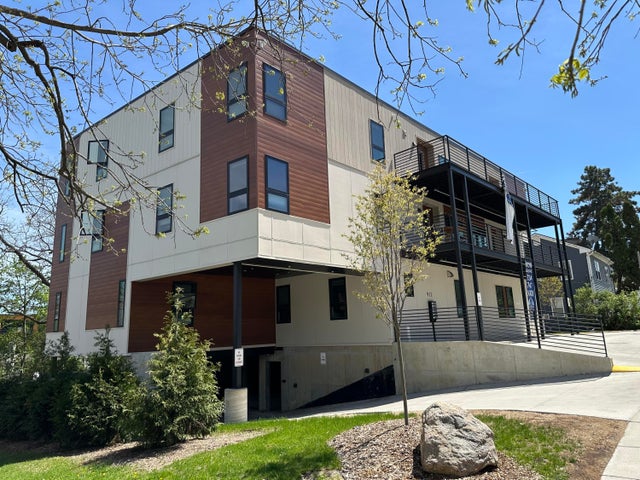

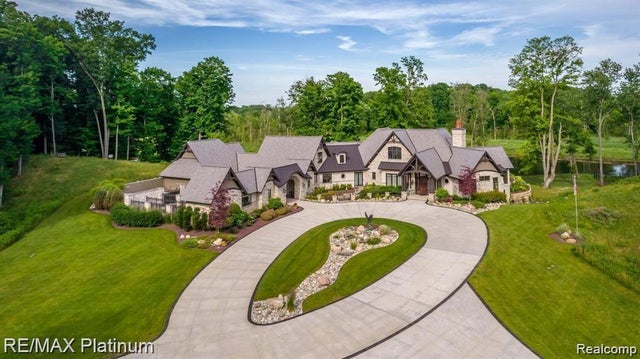


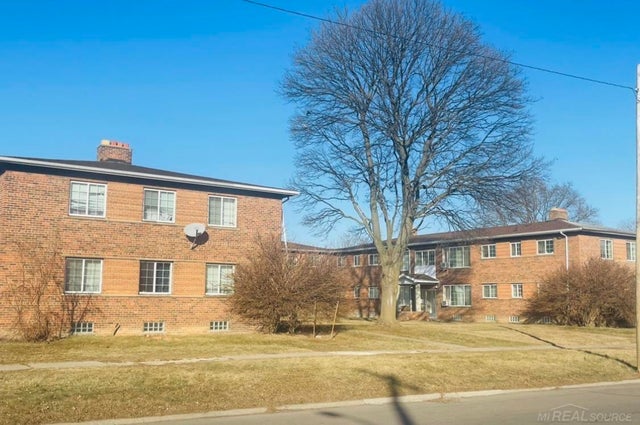


















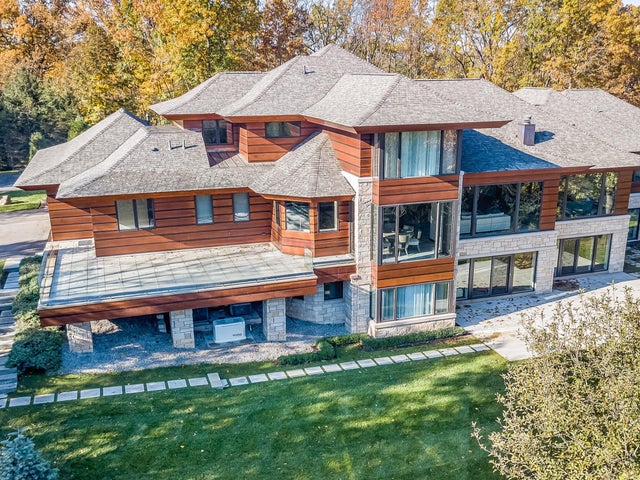
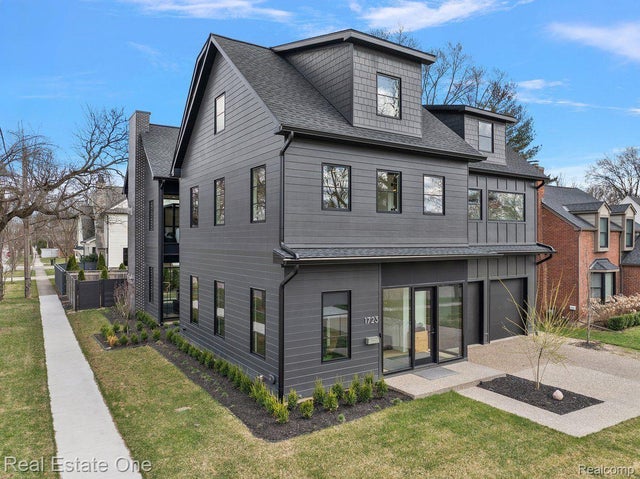




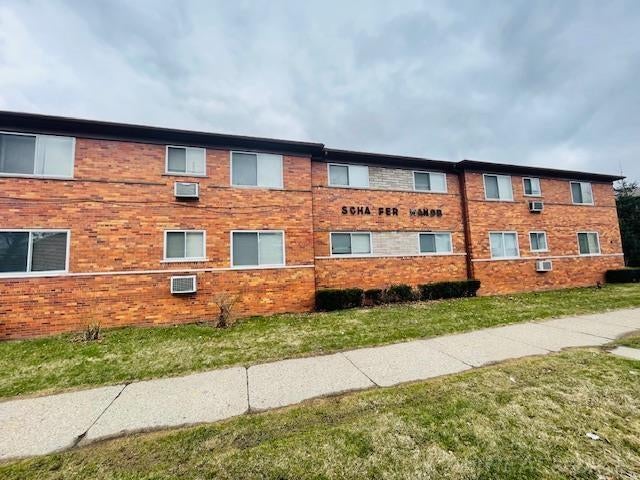



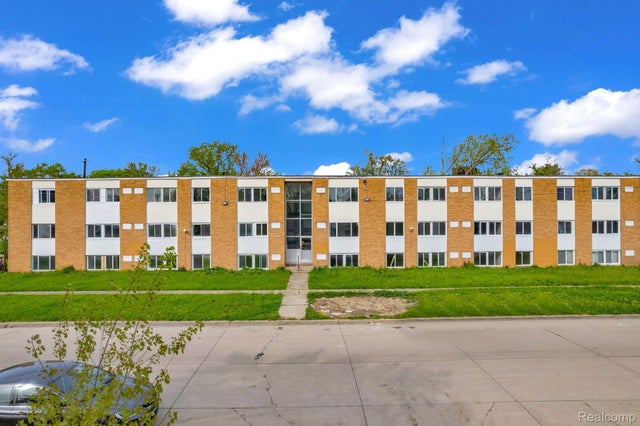
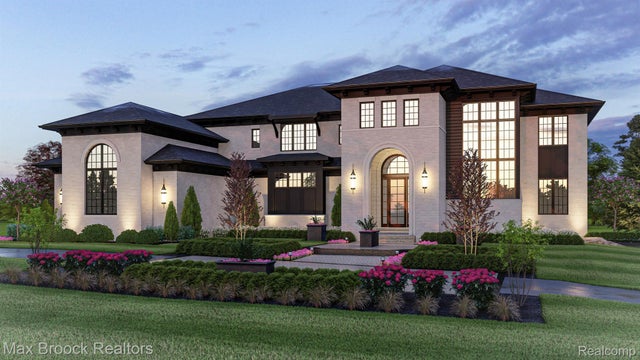




Leave A Comment